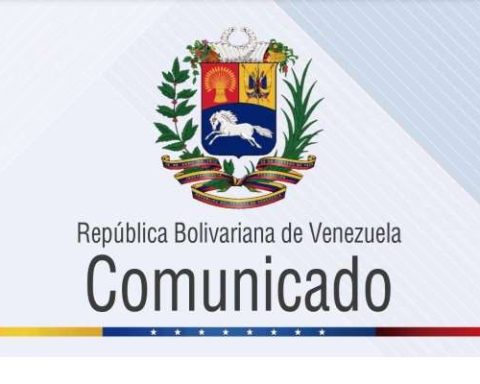
One of the fundamental features of contemporary life is globalization, whose evident existence does not allow us to deny its preponderant role. The Russia-Ukraine conflict that we are witnessing has already given sufficient proof of this assertion to the extent that the exit of the Russian oil and gas market has already produced a considerable increase in the prices of these products and -by rebound- a possible benefit for Venezuela and its regime to the extent that our only export item can be sold more expensively, which in turn will generate more resources for the Maduro government, which -consequently- acquires a more decisive role before the United States, generating -as saw weeks ago – Washington’s initiative to get closer to Caracas, which could well translate into greater stability for those who today dispatch from Miraflores.
In the United States, the same phenomenon occurs insofar as the war has already resulted in significant increases in gasoline prices, which means that every time a motorist pours fuel into a pump, he asks himself why he has to increase his economic sacrifice whose origin is a war in which he believes -wrongly- that he has nothing to do with or concern him. That fact and its consequences for inflation, added to the negative perception of Mr. Biden’s leadership, will probably result in the loss of legislative control by the Democratic Party in the mid-term elections in November this year and from then on very probable paralyzation of the plans and electoral promises still pending. Not to mention the presidential election of 2024, the result of which will largely depend on the world balance and even more so on the intracontinental relationship of the United States with its neighbors to the south. Everything is a chain.
Expanding on the same consideration, we can observe that within the European Union, whose political unity in this circumstance has been much proclaimed, there are national interests that are not in line with those of the group. Thus, for example, in Germany – whose dependence on Russian gas is decisive – there are those who want to privilege energy security over the defense of Ukraine and those who choose to contain Russia even if it is with sacrifice. In Spain, having spoken out for European unity and a closer relationship with Morocco, turning its back on the Saharawis who are fighting for their autonomy, has already resulted in the displeasure of Algeria, a gas supplier to Spain that was not long in being taken advantage of by Italy to reduce its dependence on Russian gas.
The same phenomenon is registered with the disruptions in the supply chains of the industries: there is a war causing a lack of chips and mechanical parts for automobiles for which reason production has decreased a lot, dragging employment and tax collection behind it. The television that you are going to buy will be more expensive than before because of the war in Ukraine. Unusual but true and stop counting.
All of the above and a thousand more examples is what is often called the “butterfly effect”, which is expressed by saying that the simple flapping of a butterfly’s wings in Hong Kong has some effect on the rest of the world. It may be exaggerated but it is not conceptually wrong.
Faced with the above considerations and many more that could be made, there is the feeling of exalted nationalism as the cause and flag of those who – with or without good faith – maintain that globalization has been bad and must be fought with isolationist policies, deniers of what which is self-evident but pleasing to the ear of voters attracted by slogans such as “America First” (United States first), ideologized regional integration (ALBA), energy, food and other sovereignty slogans whose internalization sounds interesting but in fact have no chance of success. Let us remember the “empanada path”, the “hydroponic farms”, the “vertical chicken coops” and those ridiculous pseudo-military exercises in which a few “brave militiamen” on foot successfully confronted and repelled the landing of a foreign military invasion by resorting to to homemade weapons hidden on the beaches and the other initiatives generated by communication artists and not by serious economists.
The foregoing in no way means abjuring those values that are consubstantial with our condition as Latin Americans, with a Judeo-Christian cultural tradition, mostly Spanish-speakers, the fruit of historical miscegenation, generous, less fanatical about work than the Japanese but more value-loving. of friendship and solidarity, etc.
All this, being so elementary and easy to understand, collides with the insurmountable difficulty that democracy presents based on the periodic popular vote, especially in our “third world” where the electoral promise of short-term benefits is a priority for the majority prisoners of poverty for those who do not serve long-term plans, whose fruition takes much longer than the need of those whose priority is the next meal for themselves and their children. The solution lies in education.
@apsalgueiro1

















